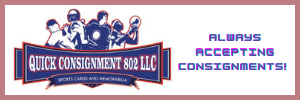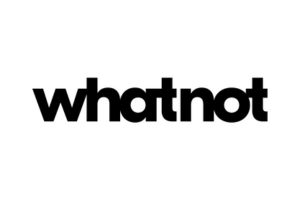
Law of Cards: WOTC Alleges Cryptozoic’s Hex is Knockoff of Magic the Gathering
This week, Wizards of the Coast (WOTC) sued Cryptozoic Entertainment and Hex Entertainment (together called Cryptopzoic), claiming that their Hex: Shards of Fate game infringes WOTC's Magic the Gathering intellectual property.
WOTCs' complaint throws a lot of darts, alleging that Cryptozoic did the following:
1) copied the look and feel, ornamental aspects, and pleasing and ornamental layout of the functional features of Magic trading cards;
2) is creating a false association between Hex and Magic; and
3) implemented the copied playing cards in a game that substantially duplicates the mechanics, plot, actions and elements of Magic.
The roots of this lawsuit began in 2012 when Cryptozoic launched a Kickstarter fundraising campaign for the release of Hex. This campaign was successful, raising $2,278,255 from 17,765 backers on what had been a $300,000 goal.
WOTC alleges it became aware that Cryptozoic copied both the mechanics of play and the general look and feel of Magic sometime after Cryptozoic announced the release of developmental versions of Hex. WOTC also "became aware that members of the gaming community had…determined the game to be a nearly identical copy of Magic."
In March, WOTC contacted Cryptozoic, informed them of WOTC's intellectual property rights in Magic, and offered multiple opportunities for Cryptozoic to resolve the matter. Obviously, that didn't work out because WOTC sued Cryptozoic in district court in Seattle.
There are a lot of accusations in WOTC's complaint, but it really boils down to three causes of action:
1) copyright infringement,
2) violations of the Lanham Act such as copying trade dress (legal translation - generally, the visual appearance of a product or its packaging);
3) and patent infringement.
My initial impression from the complaint is that Magic is overreaching. WOTC leads with the copyright and Lanham Act claims, so it must think these are the strongest. Now, copyright claims focus on "copying" of original, creative/artistic works. It doesn't protect the copying of "ideas." The examples of copyright infringement WOTC listed in the complaint don’t strike me as impermissible copying of artistic/creative expression. For that, I would have expected to see more similarities with side-by-side comparisons of the protected works and alleged infringing works. Instead, the side-by-side comparisons WTOC provides illustrate the gray area of copyright between what is considered an idea versus actual copying of creative/artistic works.
Similarly, trade dress claims focus on the potential for consumer confusion. While "similarity" of the marks/works/trade dress is a factor, WOTC's complaint actually shows consumers are not confused as to whether Hex is sponsored or endorsed by Magic. Sure, they talk about how "similar" they are, but nowhere in the complaint is there a reference to a consumer saying, "Hey, is Hex like an expansion pack for Magic?"
Have I confused you completely regarding the differences between trade dress and copyright infringement? Don’t worry. Next week, I'll provide a more in-depth analysis of WOTC's claims. It might require two articles.
Until then, here is a copy of the complaint, where you can draw your own opinion.
The information provided in Paul Lesko's "Law of Cards" column is not intended to be legal advice, but merely conveys general information related to legal issues commonly encountered in the sports industry. This information is not intended to create any legal relationship between Paul Lesko, the Simmons Browder Gianaris Angelides & Barnerd LLC or any attorney and the user. Neither the transmission nor receipt of these website materials will create an attorney-client relationship between the author and the readers.
The views expressed in the "Law of Cards" column are solely those of the author and are not affiliated with the Simmons Law Firm. You should not act or rely on any information in the "Law of Cards" column without seeking the advice of an attorney. The determination of whether you need legal services and your choice of a lawyer are very important matters that should not be based on websites or advertisements.
 | Making purchases through affiliate links can earn the site a commission |

































Nabil Stendardo
The fact that WOTC/Hasbro waited until the end of the Kickstarter campaign in order to start a lawsuit seems like pure greed to me. It would have been so much easier (albeit less lucrative) to try and stop the Kickstarter campaign before its completion, thereby reimbursing all the backers, stopping infringement before it even occurs. Remember, Kickstarter, at its discretion (according to its TOU), may cancel a campaign at any moment – and convincing them to do so would have been a piece of cake for anyone with that much leverage. Has WOTC attempted and failed to stop the campaign to arrive to completion, or did they patiently wait, knowing that they could sue for a large amount of damages. If the latter is the case, even though they haven’t waited a long time in absolute terms, they still were sleeping on their rights, trying to get as much value as they could with a lawsuit. And the “we didn’t know about it” argument is pure lies in an age of information.
If a ruling in favor of WOTC were to happen, this would be a big blow to crowdfunding. Here 2 million dollars, that investors gave to a company in order to compete with an incumbent, will go to the latter as damages and legal fees, the investors not getting anything. Now the investors can sue Cryptozoic in return, but will likely not get their money back (company will be bankrupt, having to pay 2x the sum they will have gathered).
As for the actual claims, Patent is IMHO invalid (having been filed in 1995 while game has hit the shelves – thus disclosed – in 1993). Trade dress is a silly argument, and we don’t use holistic similarity measures in order to define copyright infringement.